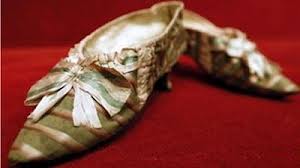I loved this slim collection of poems, many of which reminded me of something, or awakened something in me, it’s as if they don’t just exist on their own merit, but are pathways of invitation.
 Just the title A Thousand Mornings suggests how many, many mornings Mary Oliver has passed in taking walks in nature observing creatures large and small, her shortest poem two lines about an ant; of watching the tides, there are at least three poems about the sea, the one mentioned on the back cover of the book, reminds me of a lesson whose symbol is “chop wood”, that sometimes we need to stop over thinking and tend to the ordinary and mundane.
Just the title A Thousand Mornings suggests how many, many mornings Mary Oliver has passed in taking walks in nature observing creatures large and small, her shortest poem two lines about an ant; of watching the tides, there are at least three poems about the sea, the one mentioned on the back cover of the book, reminds me of a lesson whose symbol is “chop wood”, that sometimes we need to stop over thinking and tend to the ordinary and mundane.
Her title also reminds me of the benefit of writing morning pages, three pages of longhand, stream of consciousness writing, ideally practiced first thing in the morning, advocated by Julia Cameron in The Artist’s Way, as a way of awakening one’s creativity, overcoming fear or blocks.
I GO DOWN TO THE SHORE
I go down to the shore in the morning
and depending on the hour the waves
are rolling in or moving out,
and I say, oh, I am miserable,
what shall-
what should I do? And the sea says
in its lovely voice:
Excuse me, I have work to do.
***
 There is a poem called If I Were on ways to dance and the joy in life it brings, which can be read superficially, but which could be and most certainly is also about writing poetry, as I am reading another book of Mary Oliver’s called Rules for the Dance, A Handbook for Reading and Writing Metrical Verse, the title of which is clearly inspired by a stanza from Alexander Pope’s brilliant, poetic essay An Essay on Criticism a controversial work that discussed and compared styles of poetry and criticism, alluding to poets and critics past and present.
There is a poem called If I Were on ways to dance and the joy in life it brings, which can be read superficially, but which could be and most certainly is also about writing poetry, as I am reading another book of Mary Oliver’s called Rules for the Dance, A Handbook for Reading and Writing Metrical Verse, the title of which is clearly inspired by a stanza from Alexander Pope’s brilliant, poetic essay An Essay on Criticism a controversial work that discussed and compared styles of poetry and criticism, alluding to poets and critics past and present.
‘True ease in writing comes from art, not chance,
As those move easiest who have learned to dance.’ Alexander Pope
 IF I WERE
IF I WERE
There are lots of ways to dance and
to spin, sometimes it just starts my
feet first then my entire body, I am
spinning no one can see it but it is
happening. I am so glad to be alive,
I am so glad to be loving and loved.
Even if I were close to the finish,
even if I were at my final breath, I
would be here to take a stand, bereft
of such astonishments, but for them.
If I were a Sufi for sure I would be
one of the spinning kind.
***
THREE THINGS TO REMEMBER
As long as you’re dancing, you can
break the rules.
Sometimes breaking the rules is just
extending the rules.
Sometimes there are no rules.
***
There are mornings in India hinted at in After I Fall Down the Stairs at the Golden Temple and the closing poem of the collection Varanasi, which is in itself something of a response, a balm to the cry nestled within her poem A Thousand Mornings.
And finally one of my favourites:
I HAVE DECIDED
I have decided to find myself a home
in the mountains, somewhere high up
where one learns to live peacefully in
the cold and the silence. It’s said that
in such a place certain revelations may
be discovered. That what the spirit
reaches for may be eventually felt, if not
exactly understood. Slowly, no doubt. I’m
not talking about a vacation.
Of course, at the same time I mean to
stay exactly where I am.
Are you following me?
***

 Just Like February by Deborah Batterman is a novel that is immersed in nostalgia for the past, for the innocence of childhood and the reluctant awakening of the adolescent, of the fragility of love, the need for forgiveness, the pain of judgement.
Just Like February by Deborah Batterman is a novel that is immersed in nostalgia for the past, for the innocence of childhood and the reluctant awakening of the adolescent, of the fragility of love, the need for forgiveness, the pain of judgement.


